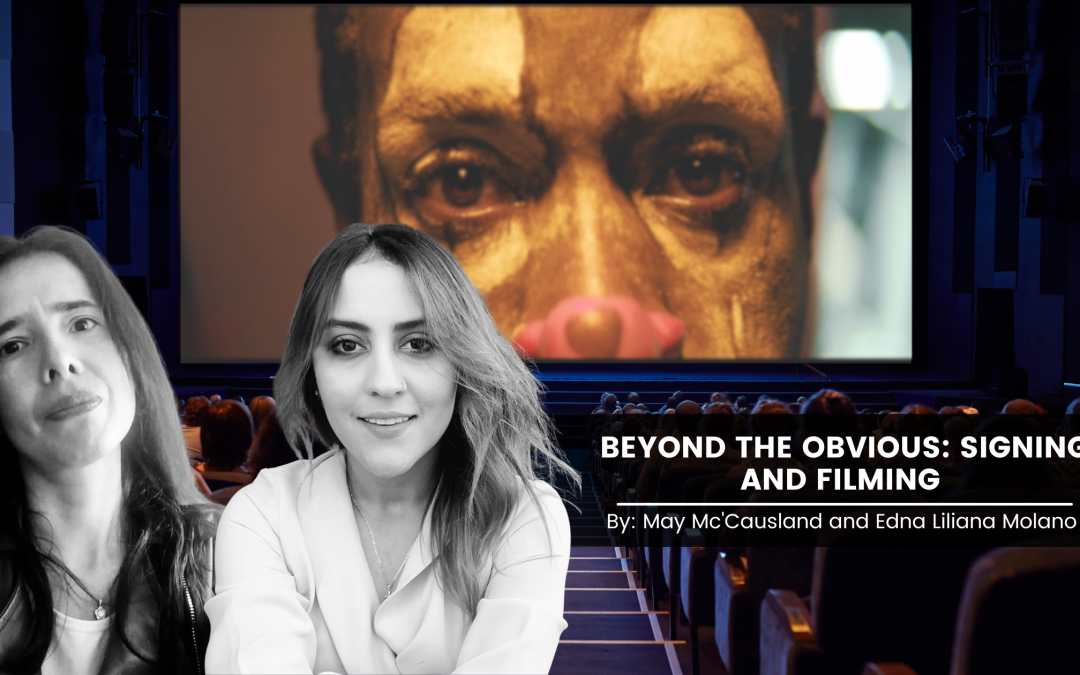When we founded Studio AYMAC, it was challenging to conceive the need for full-time legal counsel. At that time, our focus leaned more towards external communication than structuring a solid team—because we assumed that, being a creative company, the most crucial aspect was having those minds generating content to enter the market. Serious mistake!
While creativity is a cornerstone of our work and is reflected in Intellectual Property (IP), it’s equally important to safeguard that creation from the outset—through contractual agreements and registration, preventing third-party appropriation and initiating a chain of ownership. Without legally backed content, there’s no business. And without a solid business, there’s no opportunity to hire the entire technical and artistic team that depends directly and indirectly on this industry.
When we speak of the chain of legality and ownership, we mean fully respecting the rights of everyone involved in the creative process; for example, from those who have crafted a script to all the individuals participating in the production, post-production, and marketing of a work.
The role of a lawyer, with comprehensive knowledge in entertainment law, becomes indispensable—not just as support and guidance throughout the chain of rights covering an audiovisual work but also for constructing a suitable legal framework for each project. This is because creating a television series derived from a book is not the same as producing a documentary feature based on real events.
One might think this is obvious for audiovisual producers, but apparently, it’s not. I’ve heard colleagues claim that hiring a lawyer is a costly and unprofitable investment for those starting out, when lacking that support is the origin of errors and problems that jeopardize production. One of the most common mistakes is using generic contract templates that aren’t adapted to the unique needs of a work. Remember that each work is a universe.
To assist in reviewing our practices as producers, alongside Edna Liliana Molano, the lawyer responsible for our legal department, we’ve compiled the following top tips:
10 TIPS FOR A SUCCESSFUL MANAGEMENT IN THE LEGAL CHAIN OF A WORK:
- Include legal and juridical advice from the inception of the project to collaborate closely with the production and creatives. This allows for better decision-making regarding the project’s viability.
- Organize proper connections between creators and the production company: confidentiality agreements, authorization formats, and contracts.
- Analyze, alongside your legal advisor, the type of work you want to create with the creator: Original or Derived.
- Request openly the records of the work and its contracts or prior commitments acquired (if applicable). It is preferable to abandon the project in time than to become entangled in copyright issues that ultimately hinder project development.
- Analyze, from the project’s conception, the specific and essential requirements to identify legal risks, weighing the inclusion or exclusion of trademarks, posters, paintings, musical works, dances, newspapers, etc.
- Establish negotiations and conditions in writing with the creators (participations, royalties, payments, etc.). What is not written does not exist.
- Organize legal contractual structures at each stage of production. Contracts for involved personnel are not the same as the direct contracts for the work. If this confuses you, it’s another reason to involve a lawyer.
- Envision the legal frameworks of potential negotiations with third parties regarding the exploitation of the work, aiming to consider applicable norms.
- Anticipate possible conflicts in the future and study, with your legal advisor, potential scenarios in each business aspect around the work. Everything may go smoothly, but it’s better to be prepared.
- Stay updated on copyright law (agreements, laws, decrees, etc.). In legal matters, everything can change.
These 10 tips will not only enable the creation of the audiovisual work but also ensure its peaceful exploitation, avoiding litigation and contributing to reducing investment risks.
According to Edna, the most significant advice she can give to independent producers starting in IP acquisition is:
“Seeking legal advice to prevent problems is better than seeking it to solve them.”
Studio AYMAC, Let’s Sign and Film!
For legal consultations and advice, contact us at info@studioaymac.com


Comentarios recientes